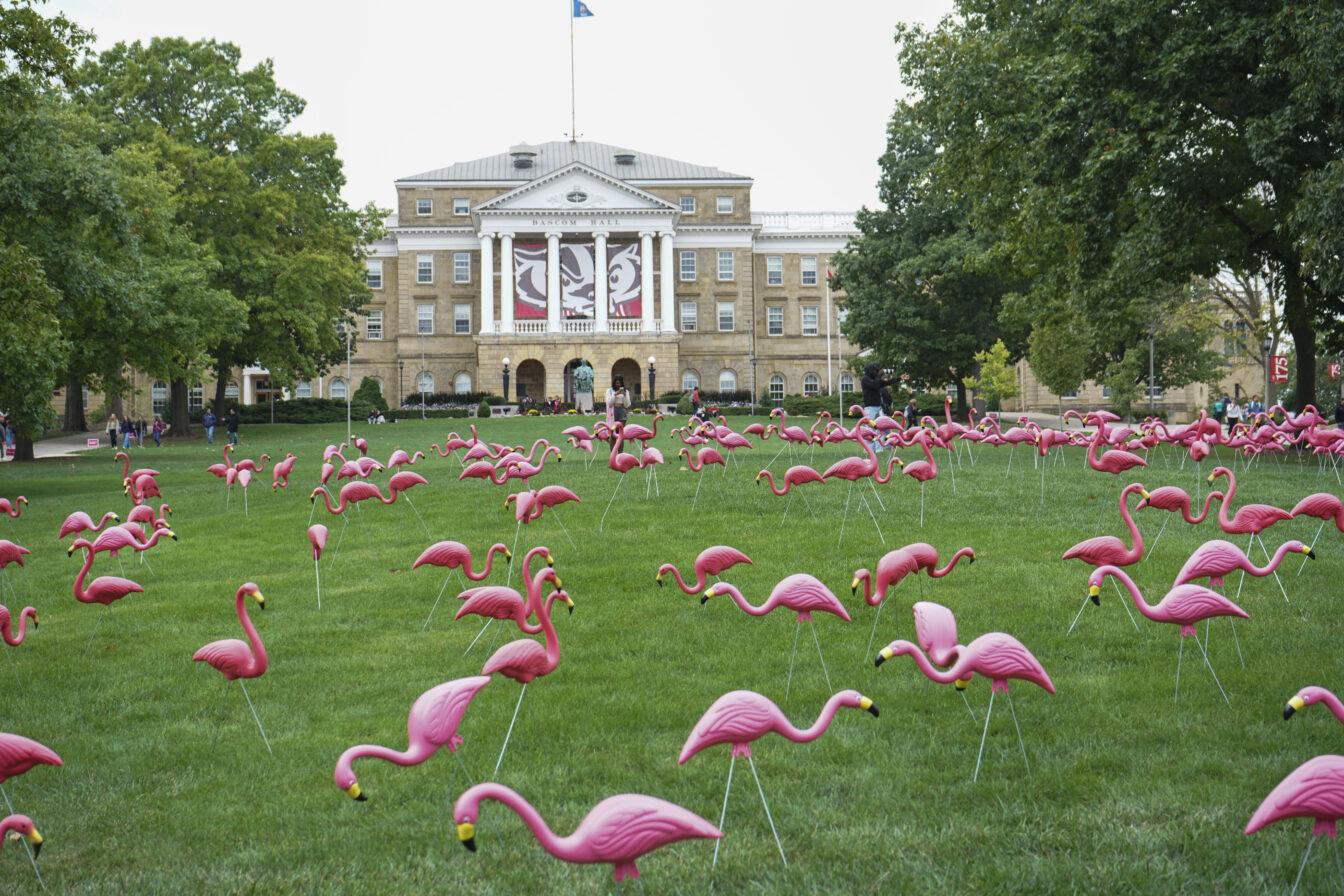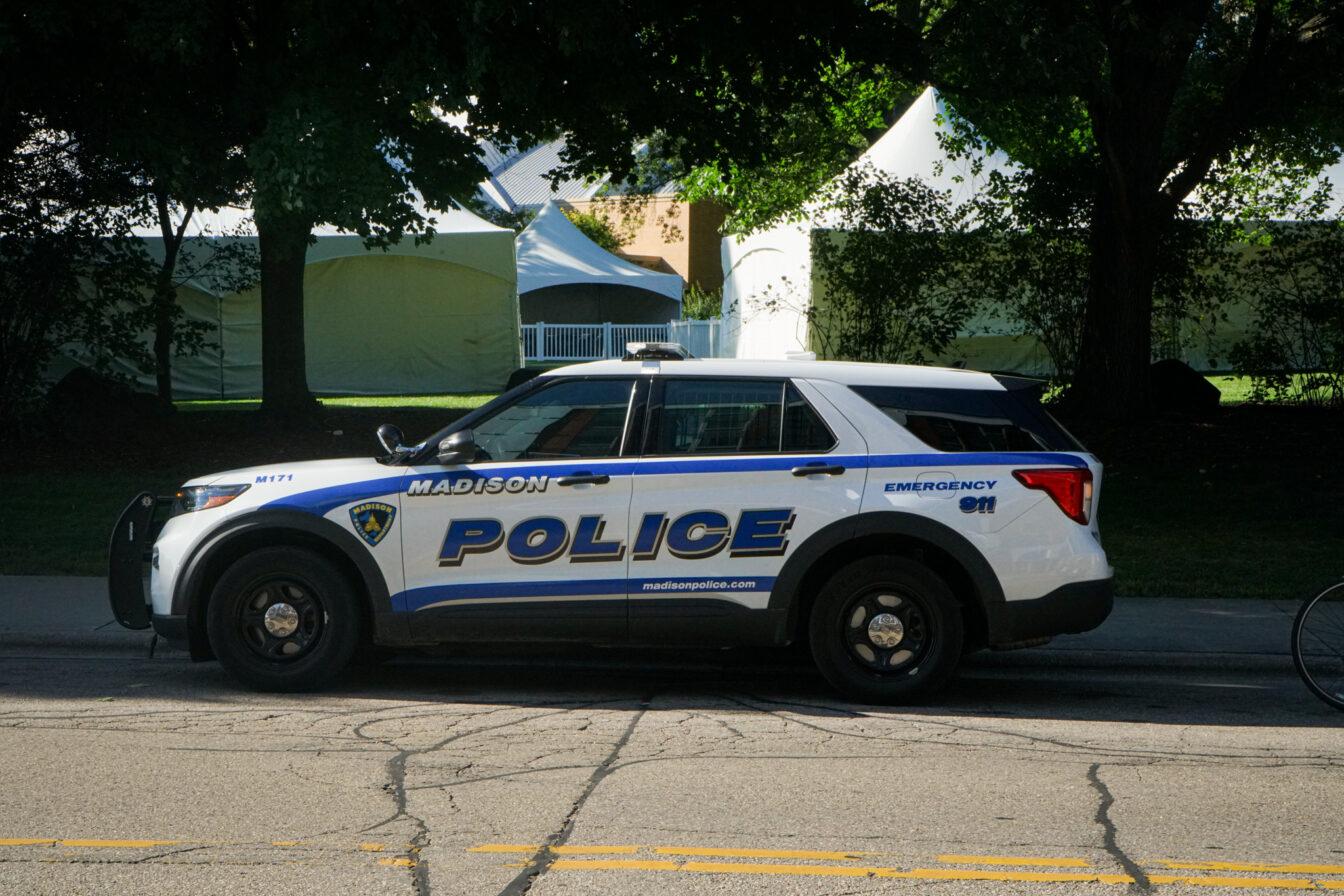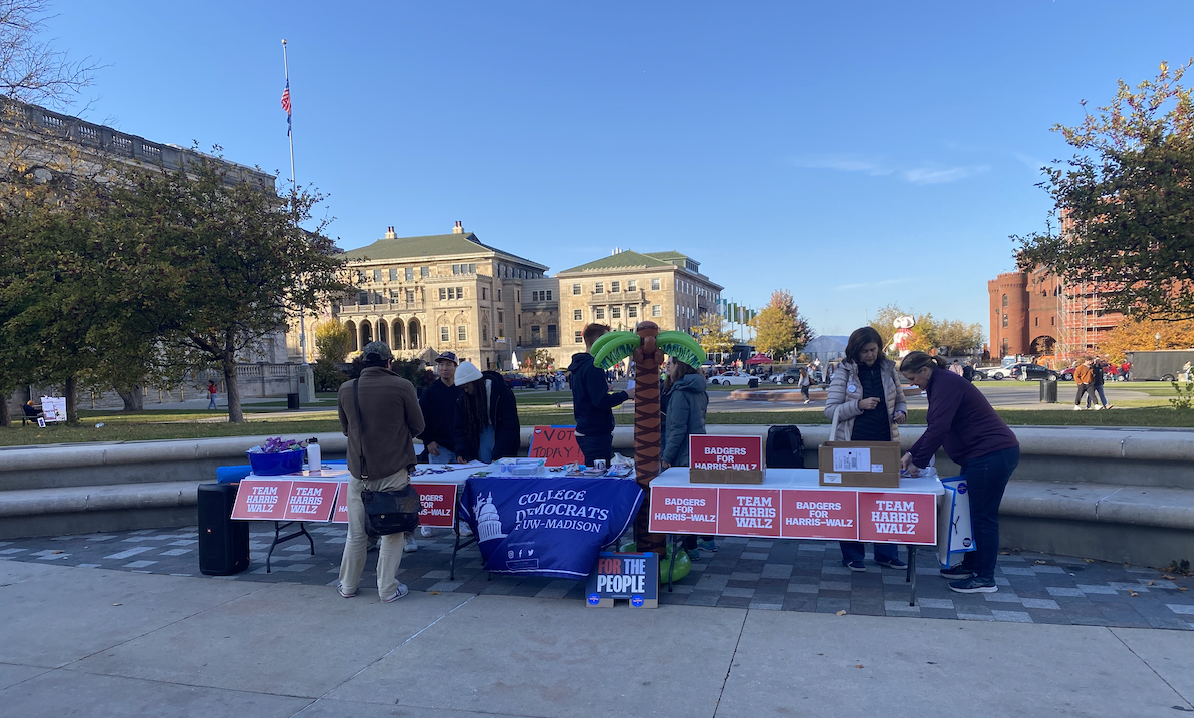[media-credit name=’ERIN KEEFFE/Herald photo’ align=’alignnone’ width=’648′] [/media-credit]After the Madison Warming Center Campaign rallied in front of the City County Building Monday afternoon, the group traveled down State Street — ending at Library Mall for a two-day sleep-out in a push for a wet shelter built in the city for homeless people who have alcohol and drug addictions.
[/media-credit]After the Madison Warming Center Campaign rallied in front of the City County Building Monday afternoon, the group traveled down State Street — ending at Library Mall for a two-day sleep-out in a push for a wet shelter built in the city for homeless people who have alcohol and drug addictions.
“No justice, no peace, until our homeless are off the streets,” was the chant of about 30 people carrying signs and stepping to the beats of two small drums in a parade down State Street following the rally at three in the afternoon, arriving at Library Mall an hour later.
The MWCC planned a “Falk-Lewicz-Ville,” sleep-out at Library Mall for Monday and Tuesday nights where participants risk arrest. The “village” is a play on the names of Madison Mayor Dave Cieslewicz and Dane County Executive Kathleen Falk.
According to Ryan Spangler, an organizer for the MWCC, a wet-shelter would provide a roof for homeless people who struggle with drug and alcohol addictions.
“Currently, local shelters deny admittance to homeless people actively using alcohol or other drugs,” Spangler said. “Twenty-five percent of homeless individuals suffer from some sort of drug addiction. Madison needs to recognize that we’ve ignored an entire group of people.”
Mayoral spokesperson George Twigg said Cieslewicz is aware of drug and alcohol addictions homeless people in the city face.
“It’s clear there’s more we can do to address the substance abuse problem amongst the homeless,” Twigg said.
According to Twigg, the city continues to focus on issues for the homeless like transportation for homeless individuals, family housing, family issues, job location, on-site food pantries, medical care, transitional housing and permanent stable housing.
Twigg said a wet-shelter is not a feasible option for the city because of lacking funds. The funding for a wet-shelter would have to come from the city’s budget, and Cieslewicz’s stance of not using city funds for a wet-shelter remains firm.
The MWCC has requested $325,000 annually to fund the wet-shelter, which Spangler said would ultimately help homeless individuals achieve sobriety.
Spangler said the majority of the $325,000 would be spent on staffing. Relationships, according to Spangler, are a necessary element to eliminating the drug problem.
“A homeless person would develop a meaningful relationship with the staff,” Spangler said. “Support from other people helps these people deal with their addictions.”
Substance abuse is an issue the city also addresses, but the city is not willing to provide $325,000 for a wet-shelter, Twigg added.
“Given the scarce resources we’re working with,” Twigg said, “wet-shelters are not at the top of the list of the city’s priorities.”
Twigg said state and federal governments have cut the funding for social-service projects. The city must do its best to prioritize programs based on their importance and effectiveness.
According to the city of Madison 2004 Annual Report on the Homeless Served in Dane County, in 2004, 2,611 individuals were served in Dane County homeless shelters. However, that same year, shelters turned away 2,484 individuals.
The report stated 77 percent of the individuals were turned away from shelters because of inadequate space or funding for alternative shelter. However, the report did not state specific shelter practices with regard to individuals actively using drugs or alcohol.







